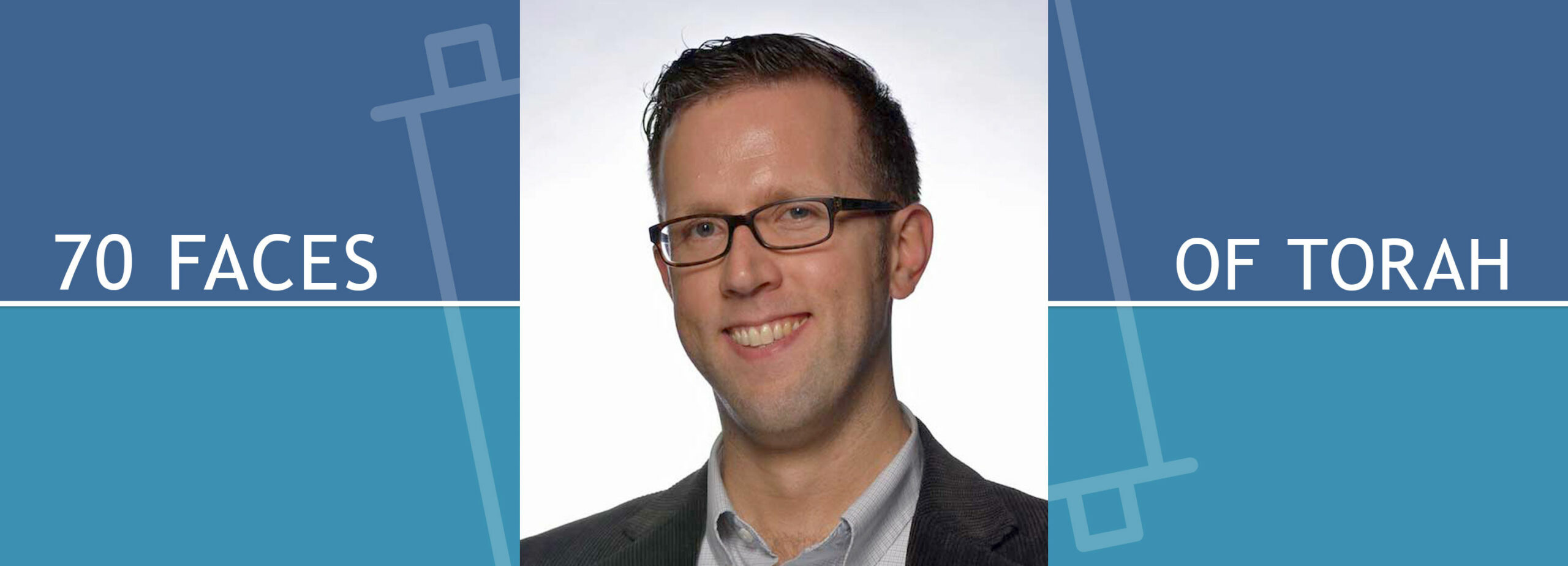Jewish learning “In the beginning…”: Returning to the Wild Depths of Creation

Parashat Bereishit (Genesis 1:1-6:8)
It is an interesting time to be thinking about beginnings. Allegedly, we are in the month of October (but did we ever actually make it through March?!). As we continue to grapple with the intersecting pandemics of COVID-19, systemic racism (what some are calling COVID-1619), wildfires, and economic devastation, it is very difficult to mark beginnings and endings.
A friend and former classmate of mine, McKenna Lewellen, offered a powerful description of this bizarre moment in which we find ourselves. She describes us as living in “too much time” and in “too many verb tenses.” Past, present, and future seem to collide daily and moment to moment as we try to untangle our histories in light of our current struggles and aspirations. The political, racial, environmental, and financial crises that besiege us require us to move more consciously and intentionally than ever between what was, what is, and what will be.
As we seek to ground and locate ourselves amidst the seeming churning abyss of uncertainty, it is powerful to revisit the biblical creation narrative—a story of God’s shaping and ordering of reality and God’s invitation to humanity to actively participate in the ongoing process of creating a just, compassionate, and sustainable world. As the Genesis text and various other biblical sources indicate, we are given the awesome privilege and responsibility to steward creation with care and humility. This requires careful reflection about how to exert our creative powers and what we can and cannot control.
From the very first lines of the Book of Genesis the wildness of life is hinted at with evocative terms like “tohu” and “tehom.” Process theologian Dr. Catherine Keller calls our attention to the vastness contained in these seemingly small words. Tehom is usually translated as “the deep,” but can also mean “ocean” and points the reader toward what Keller describes as “oceanic depths.” Similarly, Keller points out that tohu, usually translated as “to lie waste,” can also mean “wilderness” or “wild.” Rather than being empty or non-existent, the earth in its primordial state was wild or a wilderness. And the tehom contained turbulent depths churning with possibility. “In the beginning” there was not “nothing” (the ex nihilo doctrine as it is referred to in various religious writing) but “a whole lot of not-quite-somethingness” (what Keller describes as creatio ex profundis or creatio continua). Creation began with untapped potentiality. God brought shape, order, and direction to this vastness. And, as Keller proposes, creation continues as “an open-ended process.”
In this time of “too much” and “not enough” time, of widespread illness, social uprising, and environmental degradation, now is the time to think deeply about our relationship to creation as beings created in the “Divine image”—b’tselem Elohim in Hebrew and imago Dei as it is known in Christian thought—(Genesis 1:26-28). What would it be like to live with heightened awareness of the fact that life is filled with the wildness of tohu and the unquantifiable depths of tehom? In this turbulent and frightening time, can we tap and thoughtfully channel the sea of creative potentiality available to us in each and every moment? Can we see the divinity that shines in the faces of all human beings, regardless (or perhaps because) of race, gender, ethnicity, or religion? Can we uncover the holiness that inheres in our physical surroundings—both the natural world that surrounds us and the rural, urban, or suburban fruits of human efforts? Are we willing to engage in an honest reckoning with our past, willing to make concrete changes now, and willing to invest in the future of our world, our country, and our families?
COVID has shown us once again that any notion that we have full control of life is laughable. Instead, God invites us to humbly and boldly (re)create and (re)imagine what is and what could be. To read the creation narrative now requires that we hold this fundamental tension: we are capable of great things and we are forever vulnerable. As we return to the beginning—concluding the annual Torah reading cycle—scrolling from Deuteronomy back to Genesis, may we find the courage, compassion, and humility to relocate ourselves in time and space as God’s partners in the ever-unfolding, often unpredictable, process of creation.
Tom Reid is Associate Director of the Miller Center for Interreligious Learning & Leadership of Hebrew College.

